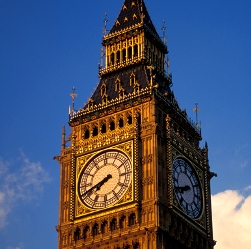 The policy team has had a busy summer, responding to inquiries into Carbon Capture & Storage (CCS) and Extractive Industries, the Scottish Planning Framework, and the National Curriculum Review. Flo Bullough reports.
The policy team has had a busy summer, responding to inquiries into Carbon Capture & Storage (CCS) and Extractive Industries, the Scottish Planning Framework, and the National Curriculum Review. Flo Bullough reports.
The Society continues to be active in communicating the science of CCS to policy-makers and the wider public. Events in 2013 on this topic include the Shell Lecture in May (www.geolsoc.org.uk/carbonstorage) and a panel discussion on policy implications at the end of a 2-day CCS conference in January. The House of Commons Energy and Climate Change Committee inquiry into CCS provided an opportunity to highlight the vital role of geology in establishing the feasibility of CCS and implementing it at scale.
The response was a substantial document, written together with the Petroleum Engineering Society of Great Britain, on topics including different types of geological settings and carbon trapping mechanisms, potential storage capacity and its scope to abate carbon emissions, and barriers to implementation. We have been asked to identify a witness to provide oral evidence to the inquiry as a result. The Society’s response can be found at www.geolsoc.org.uk/CCS-inquiry13.
The Society was also involved in a Policy Lab discussion meeting on CCS held at the Royal Society on the 12 June entitled ‘Capturing an opportunity, or storing up trouble? CCS in the UK and Europe’ to launch a report on the prospects for CCS in Europe by the European Academies Science Advisory Council.
In September, the Society responded to an inquiry launched by the Business, Innovation and Skills Committee inquiry into the Extractive Industries, bringing to bear the expertise of our Fellowship across the wide range of geological resources that could be considered under this banner, including metals, aggregates, hydrocarbons (including unconventional gas such as shale gas), groundwater and geothermal energy. Our response can be found at www.geolsoc.org.uk/extractive-inquiry-13.
CURRICULUM
The policy team has also continued its work on the National Curriculum Review, responding to a further consultation on the proposed new science and geography programmes of study at Key Stages 1-3, and another on proposed GCSE content. Natural Environment Research Council (NERC) consulted on its draft strategy (now published) and on its ongoing review of the governance and ownership of NERC centres – the Society responded to both consultations. We also responded to a Scottish Government consultation on the Scottish Planning Framework setting out the importance of the geosphere to supporting ecosystem services, and the geoscientific capacity required within statutory bodies to implement policy. Our response highlighted the serious backlog of potential SSSI sites awaiting designations by Scottish Natural Heritage.
Following the event we attended in the Welsh Assembly in May, the policy team participated in sister events organised by the Royal Society of Chemistry on behalf of the wider science community. ‘Science and the Stormont’ took place at the Northern Ireland Assembly in Belfast in October, and ‘Science and the Parliament’ at Our Dynamic Earth in Edinburgh in November. The theme for both these events was the contribution of science and engineering to health – each featured a series of talks, as well as an exhibition, which provided an opportunity for representatives from science orgnisations to meet parliamentarians and officials. An area of particular discussion and interest at the Stormont event was shale gas. In Edinburgh, the day included a ‘Question Time’ session, with MSPs from different parties discussing, among other things, the potential impact of Scottish independence on science research funding.
SHALE GAS COLLABORATION
The Geological Society is embarking on a new initiative to bring the geoscience behind shale gas exploration, production and environmental management in the UK to an audience of decision-makers, potential investors, others in the hydrocarbons and energy supply chain, and other stakeholders with an interest in shale gas. Shale UK 2014 (4-5 March, Millennium Gloucester Hotel, London) will bring together this wider audience with leading experts from the UK, US and elsewhere, to explore state-of-the-art geoscience across a range of relevant specialisms.
This major conference builds on work the Geological Society has been doing over the past couple of years to try to ensure that discussion and decision-making about shale gas is informed by high quality impartial geological research and evidence, including public briefing meetings and documents, responses to parliamentary inquiries, and briefings with policy-makers. We are working with Global Event Partners (GEP), a commercial conference organiser, to deliver this event – a new departure for the Society, which we have undertaken in order to attract an audience of influential decision-makers and stakeholders who we would not otherwise be likely to reach.
We hope the conference will also be of interest to Fellows. The Society has secured beneficial conditions to enable its Fellows to participate in order to ensure that the full range of the geoscience community is able to join in the dialogue with our primary non-geological audience.